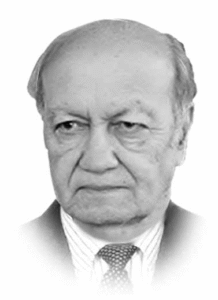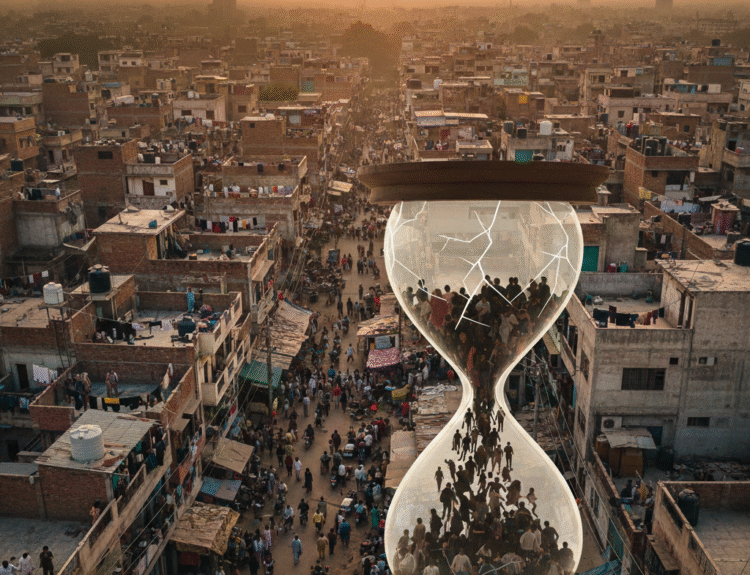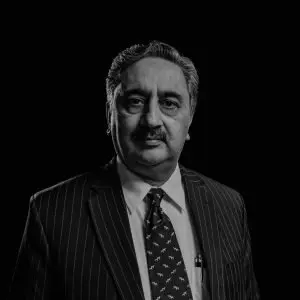
Quite frequently Jinnah’s vision and rationale for the creation of Pakistan becomes a subject of discussion in Op Ed’s and think tanks. The anxiety that the country is drifting into anarchy and internal conflict is also reflected frequently in coordinated and well researched papers.
Considering how much the country has strayed from its original concept from what our forefathers had visualised, the concern is understandable. In the prevailing anarchic conditions with economy in a free fall and politics in a whirl the deep disillusionment is not surprising. What is however highly disturbing is that despite these urgings the indifference of the government and majority of the leadership toward the national drift continues. There are also no indications that there will be any reorientation and change of direction by the power holders any time soon.
The national elections in February next year would probably give the PML-N and PPP a façade of credibility to return to power. This may not be something new in the context of our past history of sham elections, foisted democratic governments with predetermined outcomes. But have these manipulations served us well in any way in the past and why would it be any better this time? This needs serious introspection and correction by the leaders at the national and institutional level.
There has been comprehensive research and studies for the fall and decay of nations that are well known and documented but these seldom serve as reminders or brakes to a leadership that is mostly centred around itself with a small coterie of self-seekers. The role of the military and other state institutions, commonly bracketed or grouped as establishment, continues to steer the country in accordance with their vision and world view, filling the void created by failed policies and weak governance of the civil leadership. As experience has shown repeatedly, this further weakens the democratic culture and economy suffers seriously.
There are other glaring weaknesses that need to be corrected. The concept of an interim government is flawed. It does not have a power base and lacks credibility. Its main source of strength is the backing of the military leadership. There is no reason why elections cannot be fair if held by the incumbent government if election commission or authority asserts itself as is the case in India and other democracies. If we continue to strengthen the democratic character of the state then any departure or weakness will invite strong resistance and correction will follow. The lukewarm response or total indifference of the general public and an incoherent debate in the media of the election delay, even uncertainty until recently, reflect their disillusionment with the political class and doubts regarding fidelity of the election process. The other challenge is to find solutions to the extreme distrust and barriers between the political parties and integrating divergent views and policies including those of the establishment, by developing consensus in parliament.
Presently, the most disconcerting fact is that the economy is in a free fall and depends on periodic paltry doles from IMF and heavy borrowing from external sources at high interest rates. To turn it around would need sound fiscal and monetary policies that tax the rich and not further burden the poor, which the government due to political expediency and self-interest has so far failed to implement. The paradox about Pakistan’s problems is that the rulers know what is the right course or policy to adopt but deliberately choose that which has a personal angle to it even if it is to the determent of the state.
In the light of the present challenges that the nation is facing maximum participation of the people in the national and provincial elections is critical. In this endeavor, apart from the party leadership, the media and civil society should play its role. Will it be an inflated expectation that parties field a significant number of young promising candidates in the coming elections to bring change and inject fresh ideas that are compatible with the rapid technological and scientific advancement. Currently we are lagging far behind other countries in terms of progress in the IT sector and in order to correct this trajectory there needs to be increased involvement from the younger generation who are in general more technologically astute and have a better understanding about the kinds of developments occurring in this field. This correction is also necessary as they constitute a very high percentage and important segment of our population. According to the survey by Pakistan Board of Statistics in 2020-2021, male and female youth comprise 13.1% and 13.2% respectively of the total population in the country. Their combined absolute number is 58.7 million.
Women, an important and central segment of the society, also remain disadvantaged in Pakistan. Their representation in the parliament is far less than what it should be in proportion to their population that needs to be corrected in the next elections. Statistical data clearly shows how our women are lagging behind in health and education as compared to other south Asian countries — not realising that lack of sensitivity of the government to the basic rights of women has a significant impact in the long term and acts as a drag on the nation. It however goes to the credit of our women that despite these drawbacks many of them have earned global and regional fame in multiple and varied fields — be it arts, theater, science, IT, human rights activists, mountaineering, etc.
The sad aspect is that we know what our collective flaws and weaknesses are but have become prisoners of narrow personal and group vested interests. Pakistan cannot afford to remain on the side lines, perpetually dependent on foreign assistance. A broad-based national dialogue that includes the leadership of political parties and reputed think tanks, economists and media personal would help in building national consensus on critical issues. Far-reaching economic reforms and course correction that the country needs should be given high priority by the incoming government. Conflictual and personalised politics should give way to a more civilised and purposeful interaction in the parliament and in public discourse that serves the interest of the people.
—–
The writer Talat Masood is a retired lieutenant general of the Pakistan Army and a former federal secretary. He has also served as chairman of the Pakistan Ordnance Factories Board




